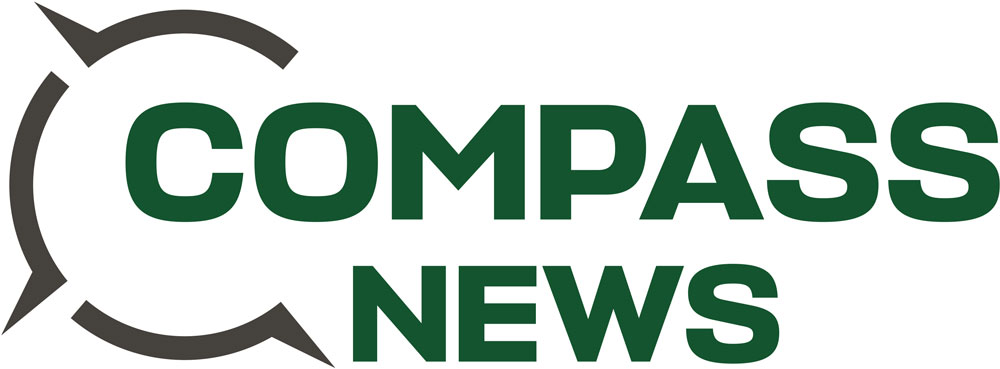Ontario’s cabinet ministers hear many stories about the challenges facing people in his Simcoe County riding, Attorney General Doug Downey has revealed to The Barrie Compass.
“One of the benefits [of being a minister] is that I’m able to bring local examples to the Cabinet in our discussions,” says Downey, MPP for the Barrie—Springwater—Oro-Medonte riding, which he describes as being “like a microcosm of Ontario.”
These days, a lot of these stories revolve around the same concern. Whether speaking with people working on the farms near Elmvale, at tourist hot spots around the Hardwood Hills or in downtown businesses based in Barrie, Downey says that everyone wants to talk about the rising cost-of-living.
“Affordability — it is the most important thing everywhere now.”
The MPP, who got his start in politics as an Orillia city councillor between 2000 and 2006, places much of the blame on the federal government’s shoulders. He is particularly critical of Ottawa’s 2019 decision to implement a carbon tax, which has risen sharply in recent year and currently sits at $80 per tonne of CO2 equivalent — which roughly translates to 14.3 cents per litre of gasoline.
“That gets added to the cost of everything — whether you’re drying grain [on an industrial scale] or just a person trying to move around.”
The lawyer-turned-politician, who was first elected to the Ontario Legislature in 2018, adds that the provincial government must ensure life in Ontario becomes more affordable. To that end, he says it is focusing on making the infrastructure investments. “We’re spending billions. Anyone who goes up [Highway] 400 can see all the work being done on bridges and overpasses. Soon, we’ll be seeing that in Springwater, too.”
He also says his government is making strides in its efforts to improve access to affordable housing. Here, the strategy is simple: make Ontario a more attractive market for would-be landlords in order to increase the supply of sorely needed rental units.
According to the most recent numbers from the Canada Mortgage and Housing Corp., vacancy rates in the province fell to 1.4 per cent at the beginning of the year, an all-time low.
During a media availability last month, Premier Doug Ford indicated the province was moving ahead with reforms that would make it quicker to evict non-paying tenants, a task that would fall on Downey, whose portfolio includes the Landlord and Tenant Board (LTB), the body that adjudicates rental disputes.
In recent years, the LTB faced a growing backlog of cases, the majority of them related to non-payment of rent. This peaked at the end of 2023, a year that saw a 31 per cent increase in the number of applications put to the board. At that point, Downey said it was taking “nine or 10 months” for it to reach decisions.
Under his oversight, the LTB has implemented several strategies to reduce the backlog since May 2023. With 89 new appointments, the number of adjudicators was more than doubled. It also adopted a number of operational changes, including the introduction of new technologies and the streamlining of its existing processes.
“With operational changes, everybody wins,” said Downey. “Finding efficiencies and improving processes will allow us to speed things up, whether you’re a landlord or a tenant.”
According to a statement provided by Tribunals Ontario, which includes the LTB, these strategies are paying off, with wait times on most decisions cut to around three months. “The LTB has been reducing its backlog every month this year, and reduced the [total] caseload by approximately 12 per cent from April 1 from September 30, 2024.”
Downey adds that while the province is focused on improving access to affordable living spaces in the long term, it is also working to address the needs of Ontario’s growing homeless population, and the municipalities struggling to deal with them, in the short term.
One decision he’s particularly proud of was Ford’s appointment of Michael Tibollo as Ontario’s first associate minister of mental health and addictions.
“We’re also putting $3.8 billion into that area,” he noted.
Downey says the premier is also mulling a motion from the big city mayors’ caucus calling on the provincial and federal governments to take on intervenor status in dealing with people living in encampments within municipalities.
“We need to make sure we’re helping our community and helping individuals. The Premier’s committed to it and we’re committed to it.”
The motion would also call for an update of the Mental Health Act and the Health Care Consent Act to enforce mandatory treatment for addiction and some severe mental health cases, according to a copy of the draft motion viewed by QP Briefing.
“Every topic we grapple with is difficult and this is no different,” Downey said. “This is something we’re thinking about actively. It crosses many ministries, so it takes a little bit [of time] to have those conversations.”

